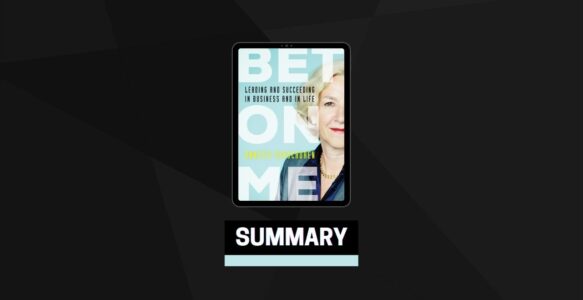Know Your Baseline
By identifying values—your baseline—you not only consistently project these values, but you are also easily able to align yourself with organizations that reflect these same values, resulting in a more meaningful and satisfying career.
Taking the time to truly understand yourself and your values is profoundly important to your professional success.
Knowing and consciously embodying your core values gives you the emotional strength, certainty and decisiveness of a credible leader that others will follow.
Forget the Best-Laid Plans
Many talented potential leaders have stalled their progress over fear of making poor decisions.
There is no such thing as a “wrong” decision. Your job as a leader is to consider the information you currently have, make a decision, and then focus on ensuring the decision you made is the right one through excellent execution.
A new decision-making framework: Align your decision with your core values. Forget about making the “right” decision. Instead, focus on making your decision right by taking actions that render it successful.
Cultivate a Brazen Attitude
Leadership is about identifying and creating opportunity, and setting a bold vision. No one will give you permission to do this; you need to give yourself permission.
In order to quickly move on opportunity, you don’t need to be the smartest, most experienced or best educated person in the room. All you really need is a brazen attitude.
Emerging leaders can set themselves apart by identifying problems and then taking the opportunity to fix them.
Mediocre Strategy, Brilliant Execution
The main thing preventing people from reaching their goals is procrastination—most often in the form of the hunt for a brilliant plan.
As a leader, your job is to get results. Results aren’t the by-product of thought, but of making decisions and taking action—quickly.
Eighty percent of your overall efforts as a leader should be directed toward execution—making things happen. Only twenty percent of your time should be spent planning.
Put Yourself on the Line (So You Know What You’re Capable Of)
People rarely know what they’re capable of achieving until life puts them to the test. That’s why your success as a leader depends so heavily upon your ability to do just that.
While you may know that you’re supposed to go for stretch goals, what you may not understand is just how uncomfortable and vulnerable you’ll feel when you’re really out beyond your comfort zone.
Putting yourself on the line may look a lot like failure and rejection before it translates into success.
Embrace the P-word: Understand Your Power, Apply Your Leverage
Whether you are negotiating the terms of a contract or getting yourself out of sticky and potentially career-breaking situations, understanding leverage—and how to apply your power in strategic ways—is an essential tool of both personal and organizational leadership.
Leverage is the specific point within a negotiation or situation in which you have the most power to influence the outcome. Learning to recognize these points and exert your power when you have the most leverage is critical in building win-win outcomes.
When it comes to negotiating, you typically have the most leverage before a contract is signed.
You Are More Than You
The biggest and hardest personal transformation you will need to make in order to be a great leader is shifting from accomplishing things all on your own to achieving things through other people.
Involve, delegate, recognize—these are the three critical steps for working through other people so that you can be more than you.
No matter how incredible people’s work ethic is, their desire to work hard and do well is so much higher when they have played a role in setting their own targets and creating their own work plans.
Praise effort, not only results.
Your Network Is Your Net Worth
Without a strong network of supporters, you can’t have the impact and speed you need to create change and become the leader you are meant to be.
A big part of your effectiveness as a leader is the relationships you develop.
The approach to networking is very, very simple: Give, give, ask.
Go Far Together
Retraining yourself to think, work and achieve as a team is one of the most profound, effective and career-making shifts you will make as a leader. This goes beyond simply delegating. It’s about consciously looking for ways to enhance the team dynamic, and to support everyone on the team to unleash their full potential.
Don’t bring up your best ideas to a cold room. Figure out who will be at the meeting and approach some of the more influential people with whom you have a solid relationship. Run your idea by them, ask for feedback, and win their support. Only when you have support should you—as a team, not as an individual—table a bold new idea to a group.
Taking Risks Pays Off
There’s a positive correlation between the amount of risk a leader is willing to take and the rewards she is able to receive.
Perform careful due diligence before adopting risk.
Debrief—but don’t spend too long staring in the rearview mirror.
Get Comfortable in Your Skin: Tell Your Story, Own Your Brand
In today’s world, cultivating a strong personal brand isn’t just something you do for you. It’s something you do for your company and the two or two thousand people you represent.
Learning to put the interests of your customers, team or organization over your own interests will help you immeasurably.
Personal branding is about standing for something, showing courage, taking the high road and speaking through your actions and accomplishments.
A Word for Women
We need more women in senior leadership positions not simply because it’s the right thing to do, but also because the challenges our world is facing—massive inequality, overpopulation, environmental degradation and violence—all require unprecedented levels of creativity and innovation.
Cultivate your emotional intelligence—a natural advantage for women.
Take on stretch assignments that push you outside your comfort zone.
Success = Getting and Staying Organized
Your ability to be successful as a business leader is directly tied to your ability to stay organized.
One of the most important relationships you’ll ever form as an emerging leader is with your right-hand person. Some people call this job “assistant.” The author calls it “enabler.”
Review your calendar regularly. Plan your personal life first then prioritize business.
Lead Responsibly
Capitalism is a force for good. But to marry the pursuit of profit with a longer-term view that combines altruism with pragmatism—this takes guts. You have to disrupt the status quo and, yet again, bet on you.
I wanted to reduce energy consumption in Home Depot’s Canadian stores. Together, the team devised a strategy that would see fifty percent of a store’s lights go out when the outdoor temperatures rose above 30 degrees Celsius. The U.S. CEO thought it was going too far, and argued with me that he “couldn’t see his way through the store,” while we were doing a walk-through. I stood my ground. “Your eyes are adjusting, it’s normal,” I said. Despite pressure to discard our strategy, we stuck to the plan and we reduced energy costs by thirteen percent in our stores, and even grew sales during this period. This kind of initiative—the decision to risk making some people unhappy in order to do the right thing—is what will advance our world from a model of growth that puts profit above everything else, to a model of true, long-term advancement that values profit, people and the environment.


